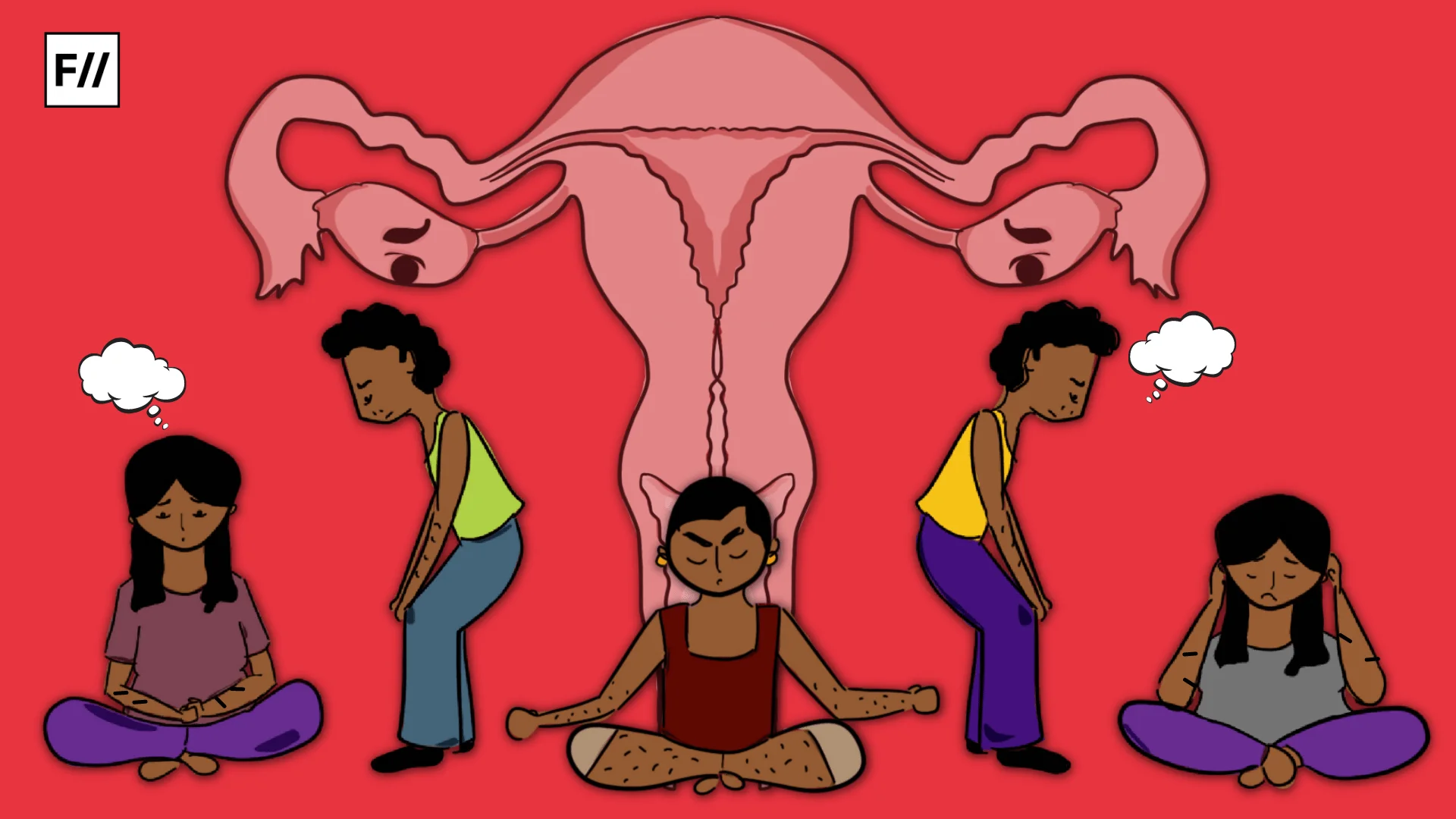Menopause is having a moment. From Mini Mathur to Namita Thapar, Indian women opening up about their menopausal journey have put into the spotlight what is often dismissed as a ‘normal transition of life’.
But as cultural awareness grows, it’s worth examining what policymakers and workplaces are doing to support women through menopause.
Unlike women in Europe and North America, the average age of a menopausal woman in India is much lower at 46.6 years — an age when women are still part of the workforce. And yet, India has no National Menopause at Workplace policy to guide employers on how they can support women employees through this period. Unless an employer acts proactively, most women going through menopause do not receive support.
This piece does not aim to set out the perfect Menopause at Workplace policy. Instead, it examines the current state of the national conversation around menopause and work, and what policymakers and companies can do to address it.
No Concrete Action Despite Being Raised in Parliament
Over the last few years, the need for creating a Menopause at Workplace policy has been consistently raised in the Parliament.
In 2019 and again in 2022, when asked if the government plans to create any policy to support women employees in the government and private sector experiencing menopause, then Minister of Women and Child Development, Smriti Irani, stated the need for “firm research findings” on the physical and mental stress experienced by working women because of menopause.
In February 2025, MP Dr. D. Ravi Kumar reiterated the need for a national framework for workplace menopause support. Observing that 49% of Indian women aged 45-54 are part of the labour force, he argued that the impact of menopause is expected to be more severe, making it even more urgent for the government to introduce a comprehensive policy.
Even though there have been no large-scale government-backed surveys to date, private research over the past few years — including a 2023 Mayo Clinic study in the U.S. and a 2022 Abbott India survey — has shown the significant impact menopause has on work life. In fact, Abbott India’s 2022 survey, which interviewed more than 1200 individuals, including women aged 45-55 across seven major cities, noted that 81% felt menopause affected their work life.
So far, public awareness continues to be at the forefront of most government efforts. Recent initiatives, such as the recent MenoMind campaign by the National Commission for Women, while commendable, remain focused on general education about menopause and do not specifically address how to support such women in the workplace.
While awareness efforts are necessary, the need for employer-specific guidance for both formal and informal sectors remains.
Where does Indian labour law stand on menopause?
There is no Indian statute that acknowledges menopause in the workplace. Even the current labour legislation does not have any provisions for menopause related accommodations.
However, there is a ‘potential framework for recognition’ under the Indian Constitution, says Aditi Sachdeva, lawyer and founder of Sarvpaksh. She notes courts have recognised a gendered right to health under Article 21 (Right to Life) and Article 14 (Right to Equality), though these have been in relation to reproductive and sexual health matters.
But the recognition of menstrual leave by private companies and states like Bihar, Kerala and Odisha may further hold promise for recognising menopause-related protections.
“Policies on menstrual leave at the workplace, gaining traction in recent years, show that recognition of biological life stages in employment policies is judicially and socially evolving. To my knowledge, however, no case law yet extends this reasoning to menopause-specific accommodations, though it can be argued that it is doctrinally consistent with the above jurisprudence [on Article 21 and Article 14],” explains Sachdeva.
Can an employer’s failure to provide accommodations for menopause-related needs be considered workplace discrimination? According to Sachdeva, there is a scope for argument under Article 15 of the Indian Constitution, which prevents discrimination on the grounds of sex. “Menopause, by its nature, affects only one sex; workplace policies that disregard its physiological effects may appear neutral but can result in disproportionate hardship for women,” says Sachdeva.
She further explains that such discrimination can be established through individual evidence, such as a woman presenting medical documentation and detailing adverse treatment, or through broader institutional patterns.
Sachdeva also adds that, while, given the current statutory framework, no employer can be legally compelled to include menopause-related clauses in their internal policies, organisations in the public domain can be “directed to implement menopause policies through judicial or regulatory orders.”
Flexible Work Isn’t A Complete Fix
A growing number of Indian companies, such as EzeRx, Standard Chartered Bank, and Intuit, are introducing initiatives to support employees experiencing menopause.
These initiatives usually focus on increasing awareness about menopause, supporting health needs through enhanced insurance coverage, doctor consultations, and mental health support. Another recurring theme of the initiatives involves flexible work policies.
Flexible work — which allows employees to have greater freedom of where and when they complete their work — is seen as a useful way to offer menopause support. But as recent research suggests, it may not be a foolproof solution.
A 2025 research by faculty of the University of Edinburgh Business School notes that flexible work can end up as a ‘double-edged sword for employees experiencing menopause.’ The authors argue that “flexible work offered women a mechanism to hide the extra time required to maintain performance, which was often not reported as the time was hidden from colleagues, managers, clients and students, among others.”
This research, based on interviewing women working under flexible work policies while dealing with severe menopause symptoms, showed that while such women continued to perform well at work, it was often at the cost of “managing menopause away from work” through a “mantra of personal responsibility to work.”
Given every woman has a unique experience of menopause, the authors caution against using flexible work policies as a ‘blanket’ solution. Instead, they suggest that employers must look at an individualised approach that provides support to menopausal women based on their needs.
A suggested solution is encouraging ‘job crafting towards strengths’. This is a practice that allows women more freedom to reshape tasks based on their symptoms on a day-to-day basis.
Lessons for India from international policy environments
Formalising menopause support in workplaces is a move that is gaining international momentum.
In the UK, for instance, a Menopause Employment Ambassador — a voluntary appointee — works closely with employers across sectors to improve the workplace culture around menopause. This includes conducting training sessions and encouraging employers to share accommodation strategies.
In April 2025, the UK government also established an independent ‘Menopause advisory group’ to guide employers on how they can support menopausal employees to stay in the workforce. The UK government is trying to legalise the provision of menopause support at the workplace through its Equality Rights Bill, 2024. The draft law creates a duty for employers with more than 250 employees to publish a ‘Menopause Action Plan’ that details how they intend to support such employees.
In Australia, while there is no law at present that guarantees explicit protections for supporting menopause at work, in March 2025, the Australian government issued guidance to Australian government agencies to support employees experiencing perimenopause and menopause in the workplace. Previously, a government committee set up to examine issues related to menopause also recommended that Australian workplaces develop menopause workplace policies in consultation with their employees.
These signal the urgent need for a state-supported framework around menopause in India that recognises it as a workplace rights issue and lays down a strong foundation to build upon.
The Way Forward
The silence of Indian policymakers about the menopause at work policy is no longer an option.
And as the national policy shapes up, the companies that have proactively implemented measures must audit their efforts to examine if they align with the expectations and needs of those experiencing menopause.
In particular, they must assess how inclusive their policies truly are — do they account for trans and non-binary employees who may also experience menopause? Do they adopt an expansive understanding of menopause that includes surgically induced menopause, early menopause, or perimenopause? Do they clearly outline how performance evaluations are reconciled with menopause-related accommodations?
Implementing a menopause at work policy is not an act of benevolence. Rather, it is the willingness to take active responsibility and build workplaces that hold space and recognise the real impact of an inevitable physiological process.
About the author(s)
Shayonee Dasgupta is a freelance writer and independent researcher who reports on the intersection of health, wellness, gender, and neurodivergence. In her past, she used to be a corporate lawyer.




